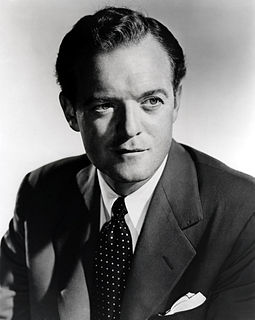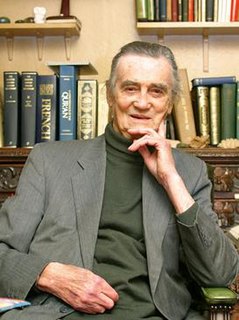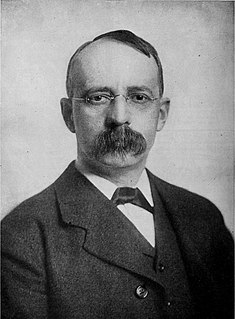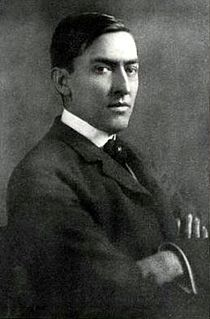A Quote by Henry Ford
I don't expect to retire. Every man must work, that's his natural destiny.
Related Quotes
Certain mystical philosophers have personified Destiny, and from this point of view each man's personal destiny is his archetype or "other self"--his "angel"--with whom he must be reunited if he is to rise above his fragmentary identity as a worldling and become whole, as he is (and always has been) in the mind of God.
My conclusion is that there is no reason to believe any of the dogmas of traditional theology and, further, that there is no reason to wish that they were true. Man, in so far as he is not subject to natural forces, is free to work out his own destiny. The responsibility is his, and so is the opportunity.
Destiny ... a word which means more than we can find any definitions for. It is a word which can have no meaning in a mechanical universe: if that which is wound up must run down, what destiny is there in that? Destiny is not necessitarianism, and it is not caprice: it is something essentially meaningful. Each man has his destiny, though some men are undoubtedly "men of destiny" in a sense in which most men are not.
Retirement is a very subjective thing. There are guys I know who retire and they're very happy and they never miss work at all. I can't see myself retiring and fondling a dog every day. I like to get up and work and go out. I have too much energy or too much nervous anxiety or something. So I don't see myself retiring. Maybe I will suddenly get a stroke or a heart attack and I will be forced to retire, but if my health holds out I don't expect to retire.
A man follows the path laid out for him. He does his duty to God and his King. He does what he must do, not what pleases him. God's truth, boy, what kind of world would this be if every man did what pleased him alone? Who would plough the fields and reap the harvest, if every man had the right to say, 'I don't want to do that.' In this world there is a place for every man, but every man must know his place.
Human stories are practically always about one thing, really, aren't they? Death. The inevitability of death. . . . . . (quoting an obituary) 'There is no such thing as a natural death. Nothing that ever happens to man is natural, since his presence calls the whole world into question. All men must die, but for every man his death is an accident, and even if he knows it he would sense to it an unjustifiable violation.' Well, you may agree with the words or not, but those are the key spring of The Lord Of The Rings
Man—every man—is an end in himself, not a means to the ends of others; he must live for his own sake, neither sacrificing himself to others nor sacrificing others to himself; he must work for his rational self-interest, with the achievement of his own happiness as the highest moral purpose of his life.




































